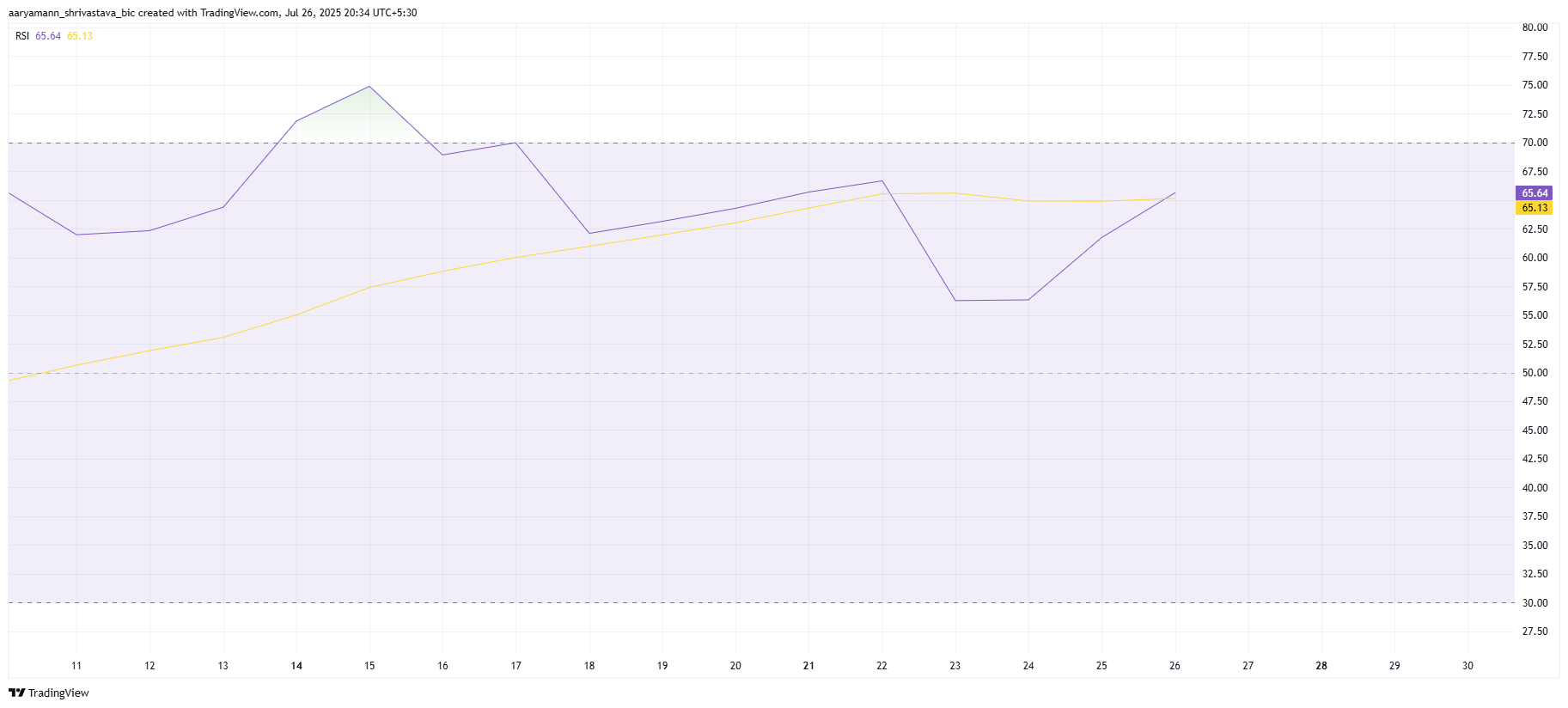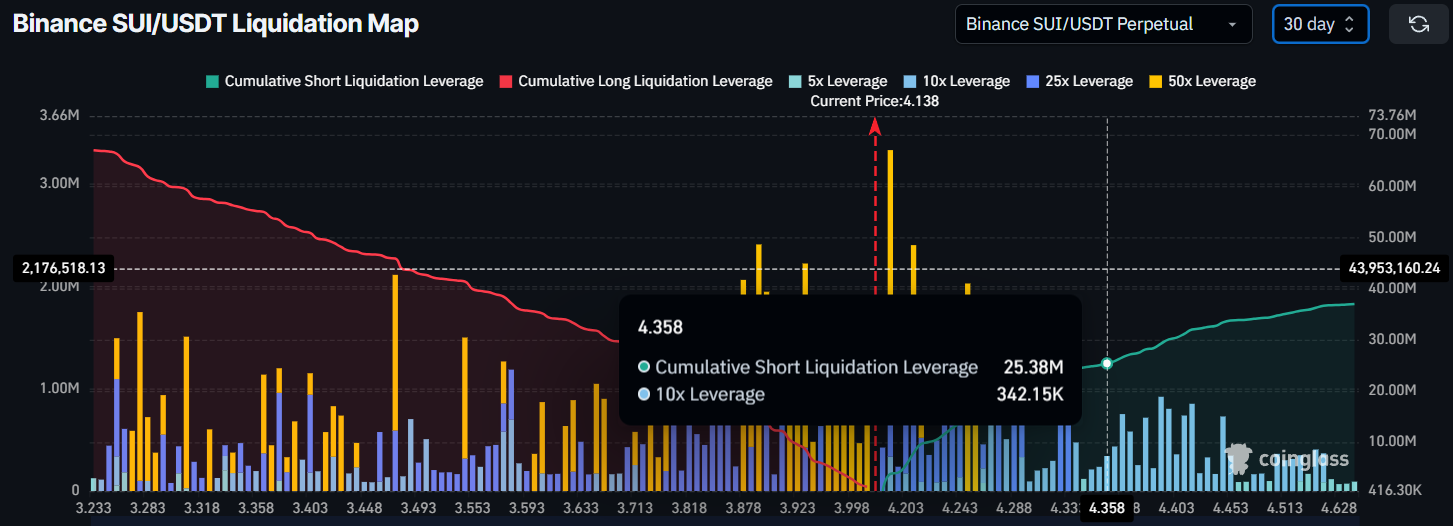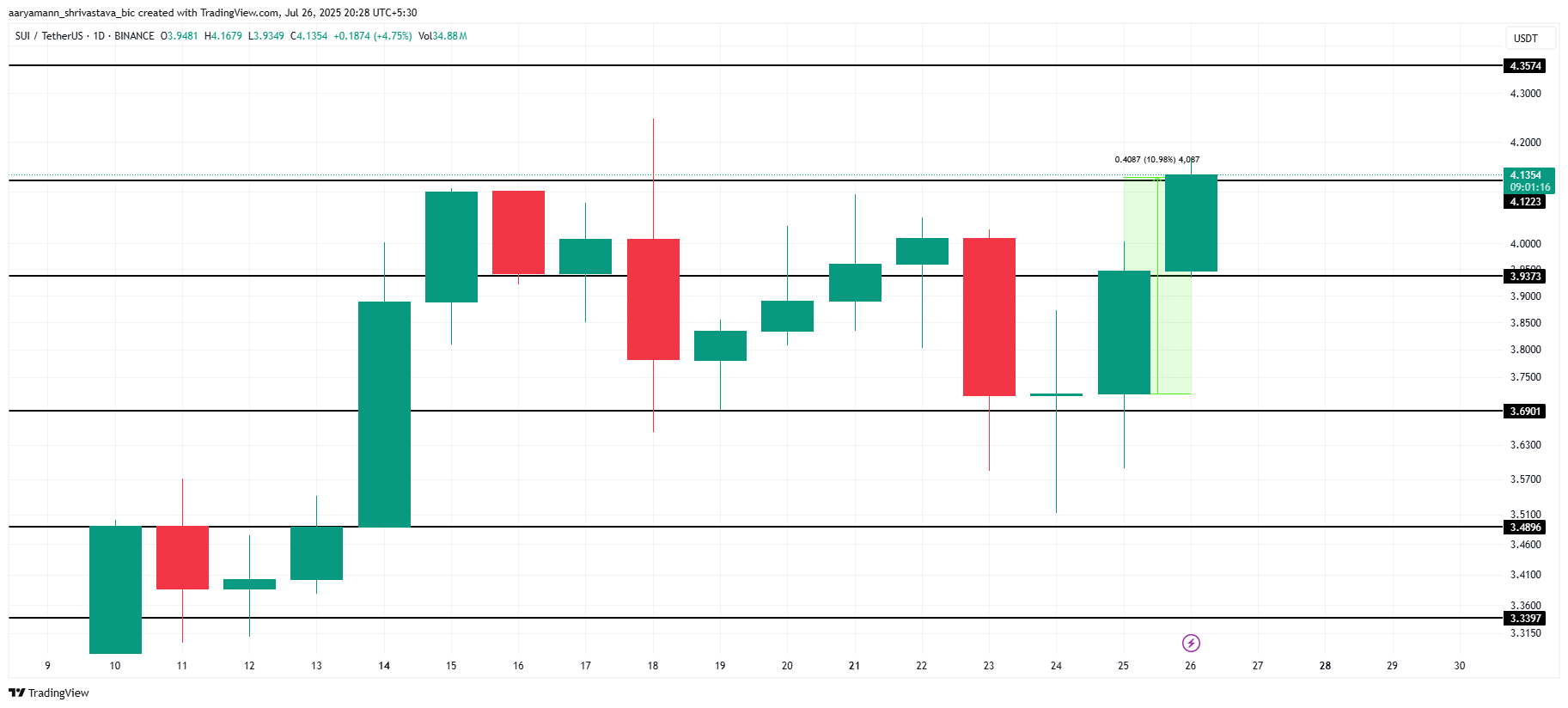Binance has taken a bold step toward redefining the SocialFi experience, launching Live Trading on its social platform, Binance Square.
The move enables users to follow livestreamed strategies from verified creators and execute actual Spot or Futures trades directly within the stream.
Binance Square Launches Live Trading Integration
With this launch, users can follow real-time live streams from verified creators. They can also place spot or Futures trades directly within the stream, removing friction between learning and execution.
This marks a significant leap toward merging real-time content, education, and on-chain action in a single, seamless interface.
“Live Trading is designed to make trading more accessible, interactive, and engaging…It’s a natural evolution of Binance Square,” said Jeff Li, Head of Product at Binance, in a statement shared with BeInCrypto.
During livestreams, users can interact with pinned strategy cards that display vital trade information such as trading pair, order direction, and size. They can also execute trades without leaving the session. This blends entertainment, education, and financial action in a single user flow.
For creators, Binance offers monetization opportunities. Specifically, up to 50% commissions on referred trades, enhanced visibility, and even an Incubator Program for up-and-coming strategists.
Verified influencers with over 1,000 followers can also share up to 100 past trades. This increases their visibility through competitions and campaigns. They also reserve the choice to apply to the Square Live Trading Incubation Program if they are starting.
This move is part of Binance’s mission to transform crypto into a more community-driven and participatory ecosystem.
With livestream competitions, multistreaming support, and more in the pipeline, Binance’s Live Trading turns market commentary into real-time financial action. This feature could reshape how crypto users learn, trade, and connect.
How Does It Compare to Pump.fun’s Livestream Model?
Binance is not the first to introduce the concept of interactive, livestream-enabled trading. Pump.fun, the Solana-based meme coin launchpad, recently reopened its livestream feature with added safeguards. This followed backlash over unmoderated, speculative content that sometimes misled viewers and encouraged impulsive behavior.
As BeInCrypto reported, Pump.fun’s earlier live streams were criticized for “degen behavior,” hype-driven pump attempts, and minimal oversight. To put this in perspective, one stream was even accused of targeting minors.
In contrast, Binance’s Live Trading approach focuses on verified creators with clear risk disclosures. Additional differentiators include transparency through pinned strategy cards and direct execution through the platform’s regulated trading infrastructure.
There is also a structured monetization model. The market edges challenge the notion that meme hype is amplified, with Binance providing educational value, fostering transparency, and encouraging informed decision-making.
Therefore, it rivals Pump.fun, which reflected crypto’s raw energy and community-driven meme culture. This signals a maturation of SocialFi from chaos to structure, marking a pivotal moment in the evolution of SocialFi. The space is shifting from speculative chaos to platform-verified strategy.
SocialFi Matures: COOKIE, Kaito, and the Rise of Creator-Led Trading
At the same time, Binance’s innovation is part of a broader wave of SocialFi developments turning creators into monetized knowledge hubs.
Cookie DAO recently launched COOKIE Snaps, a decentralized creator network focused on InfoFi. It combines news delivery, personalized feeds, and content ownership.
COOKIE is building a full-stack ecosystem that lets creators earn for sharing insights. This gives users more control over the information they consume.
Similarly, Kaito is fusing AI, search, and social media monetization. The project recently launched its native token, KAITO, to reward Web3 researchers and influencers with direct value for their posts, signals, and commentary. This move disrupted the traditional ad-driven model of centralized platforms.
Together with Binance’s Live Trading, these initiatives suggest a new paradigm, where content is actionable, decentralized, and financially incentivized. The future of SocialFi might go beyond watching and liking. These initiatives leverage learning, earning, and time.
As SocialFi advances, Binance’s livestream-enabled trading may be the first domino in a broader movement. This could transform how users interact with finance, content, and each other in the Web3 era.
The post Binance Launches Live Trading to Foster Interactive Crypto Education appeared first on BeInCrypto.







